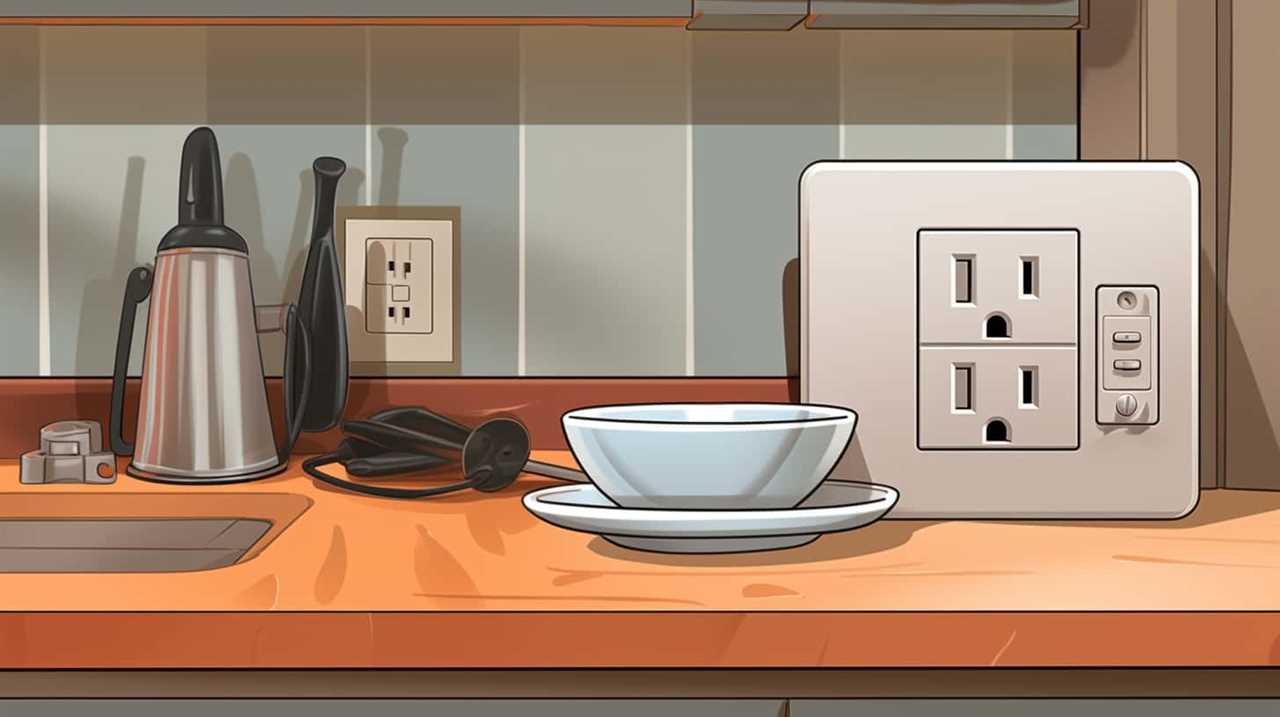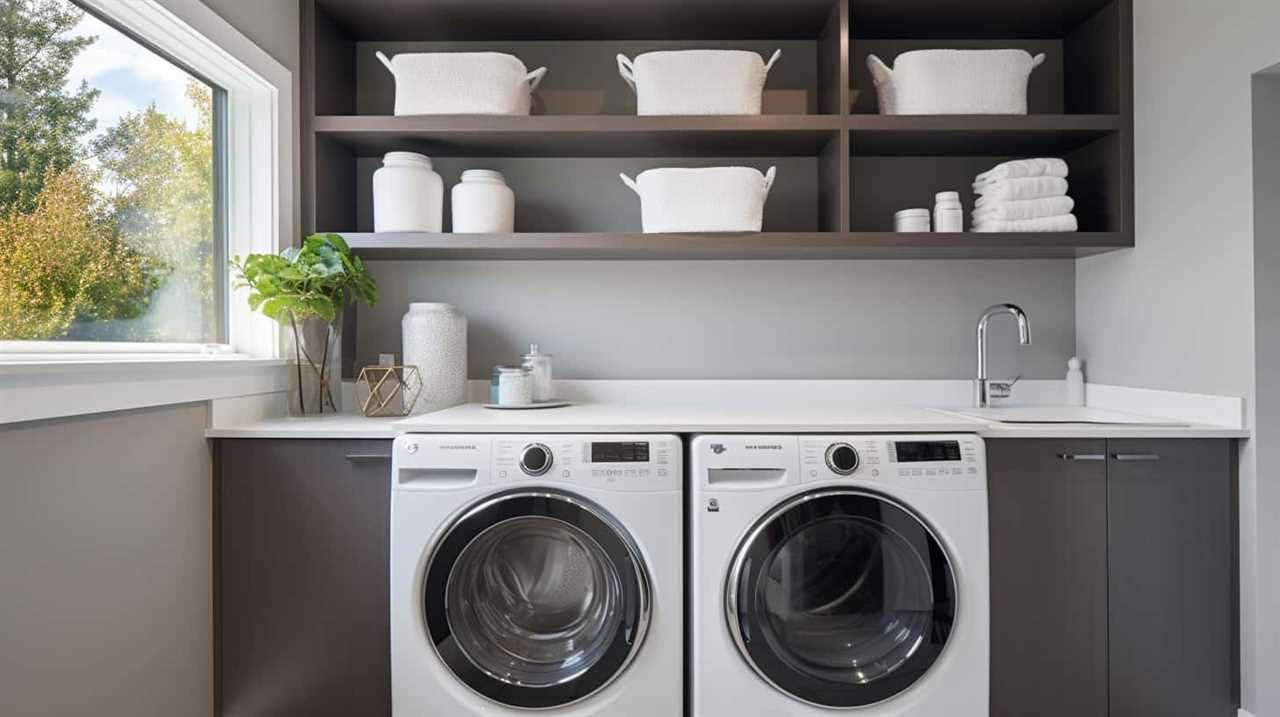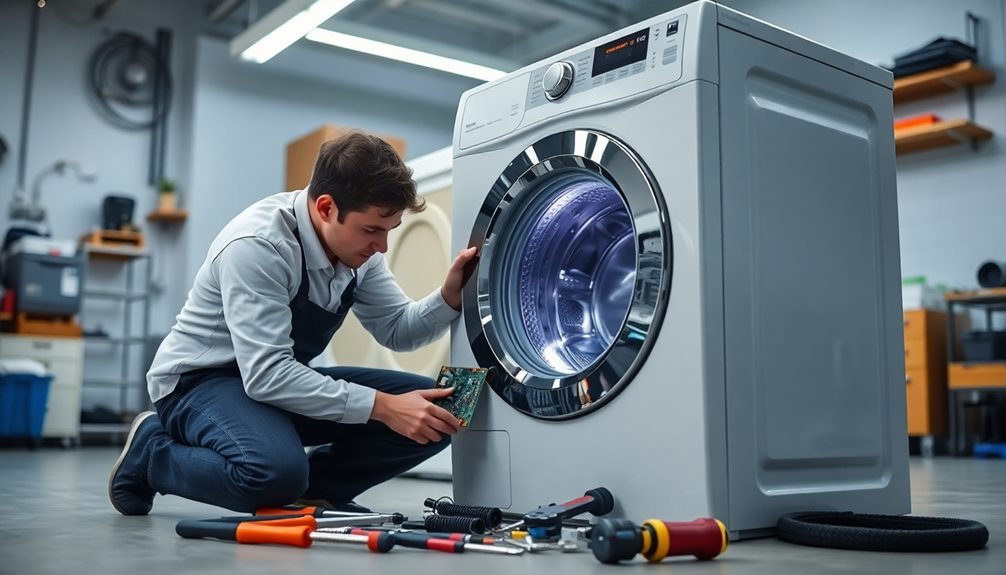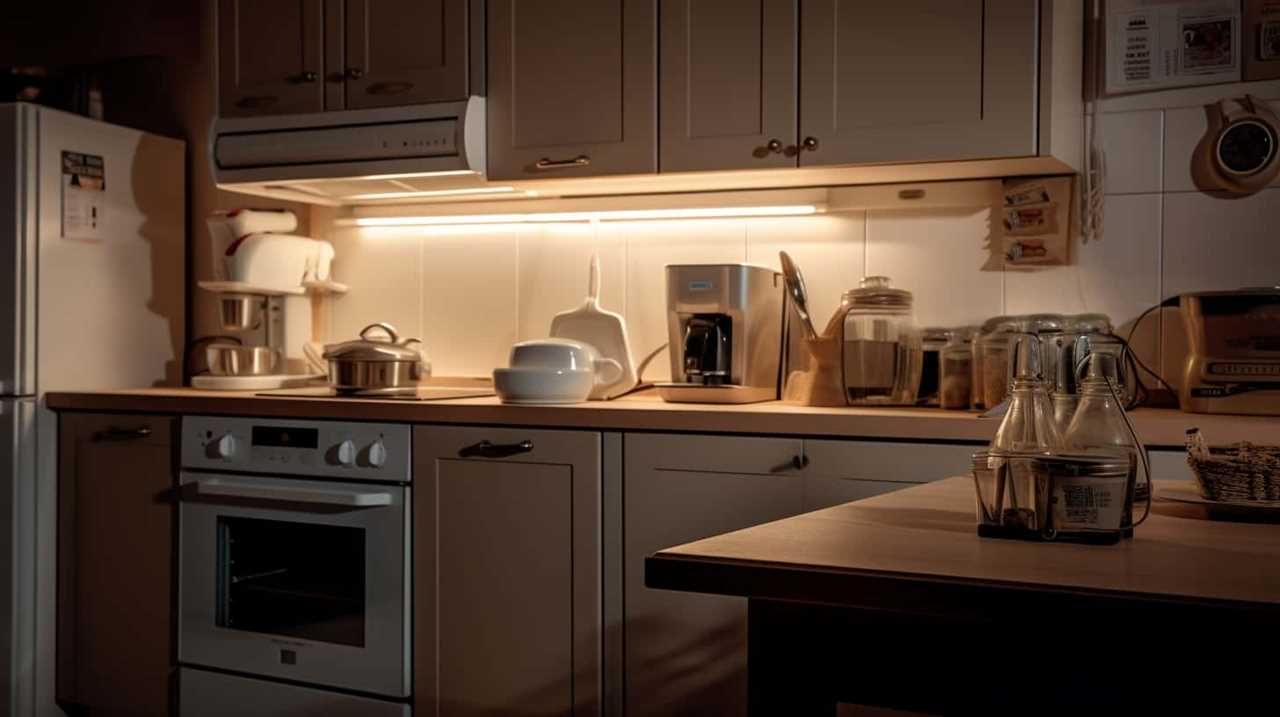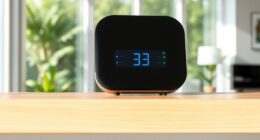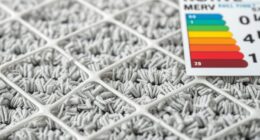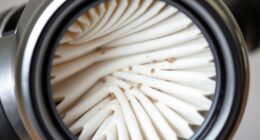Got a burning question? We have the answer: Can appliances for rental properties be deducted?
The IRS has laid out guidelines for eligible appliances, and we’ll break it all down for you.
From understanding depreciation rules to calculating the value of your appliances, we’ll show you how to maximize your tax benefits.
But be careful! There are common mistakes to avoid and even IRS audits to watch out for.

Seek professional advice to ensure you master appliance deductions.
Key Takeaways
- Energy efficient appliances for rental properties can qualify for tax deductions.
- Keep accurate records of purchase and installation costs, as well as maintenance expenses.
- Depreciation allows for the gradual deduction of appliance costs over a specific period.
- Seeking professional advice from a tax professional can help maximize deductions and ensure compliance with IRS regulations.
Eligible Appliances for Tax Deductions
When it comes to eligible appliances for tax deductions, we can count on being able to write off the cost of purchasing and installing necessary items. The IRS allows deductions for energy efficient appliances and appliance maintenance costs.
Energy efficient appliances not only help in reducing utility bills but also qualify for tax deductions. These appliances are designed to consume less energy while delivering the same level of performance.
It’s important to keep in mind that the IRS has specific guidelines regarding which appliances qualify for deductions, so it’s crucial to ensure that the appliances meet the necessary criteria. To maximize the deductions, it’s recommended to keep a record of the purchase and installation costs, as well as any maintenance expenses incurred throughout the year.

Understanding the IRS guidelines for rental property appliances is essential to ensure compliance and optimize deductions.
Understanding IRS Guidelines for Rental Property Appliances
To continue our discussion on eligible appliances for tax deductions, let’s delve into the understanding of IRS guidelines for rental property appliances.
When it comes to maximizing tax benefits for rental property appliances, it’s important to consider the energy efficiency of the appliances. According to the IRS guidelines, energy efficient appliances can qualify for tax deductions. These appliances not only benefit the environment but also help reduce utility costs for tenants, making your rental property more attractive.
To ensure eligibility, the appliances must meet the energy efficiency standards set by the IRS. It’s recommended to keep detailed records of the appliances purchased, including receipts and energy efficiency certifications.
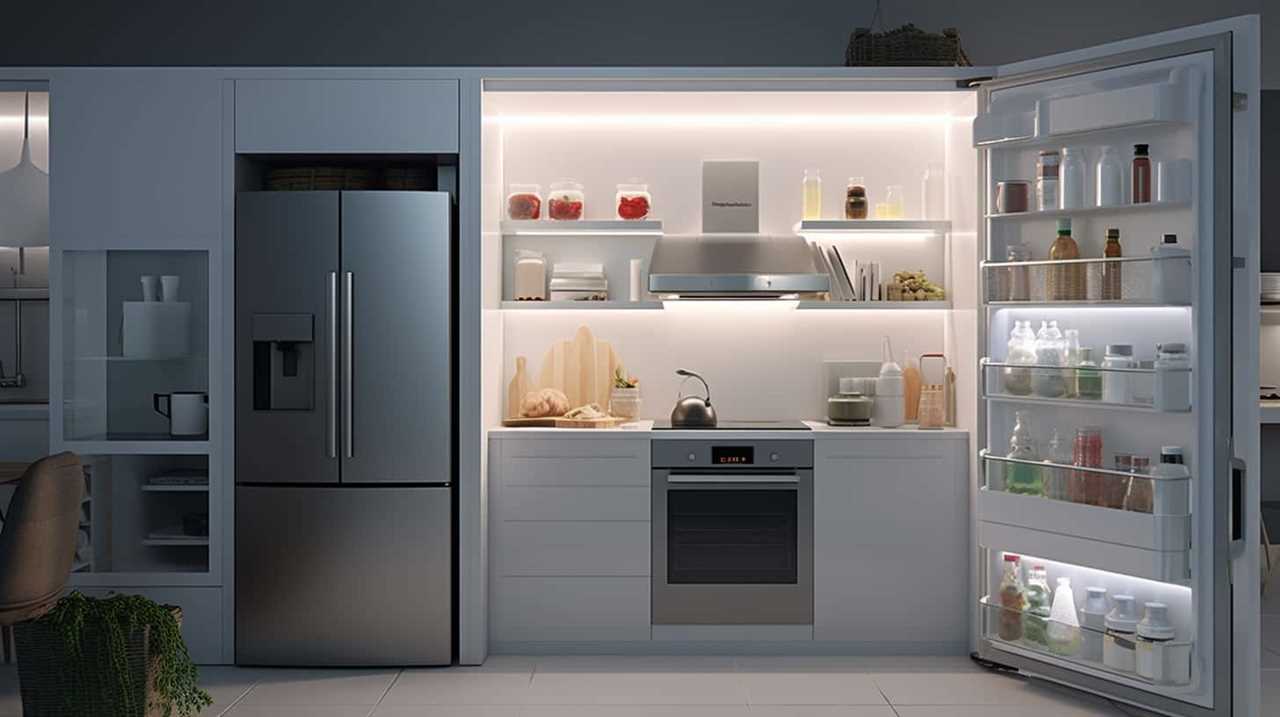
Depreciation Rules for Deducting Appliances
When it comes to deducting appliances for rental property, understanding the depreciation rules is crucial.
Depreciation refers to the gradual decrease in value of an asset over time, and it plays a significant role in determining the tax benefits you can receive for your appliances.
Appliance Depreciation Rules
Appliance depreciation rules dictate the guidelines for deducting the cost of appliances for rental properties. Understanding these rules is crucial for landlords and property owners who want to maximize their tax deductions.
Here are three key points to know about appliance depreciation:
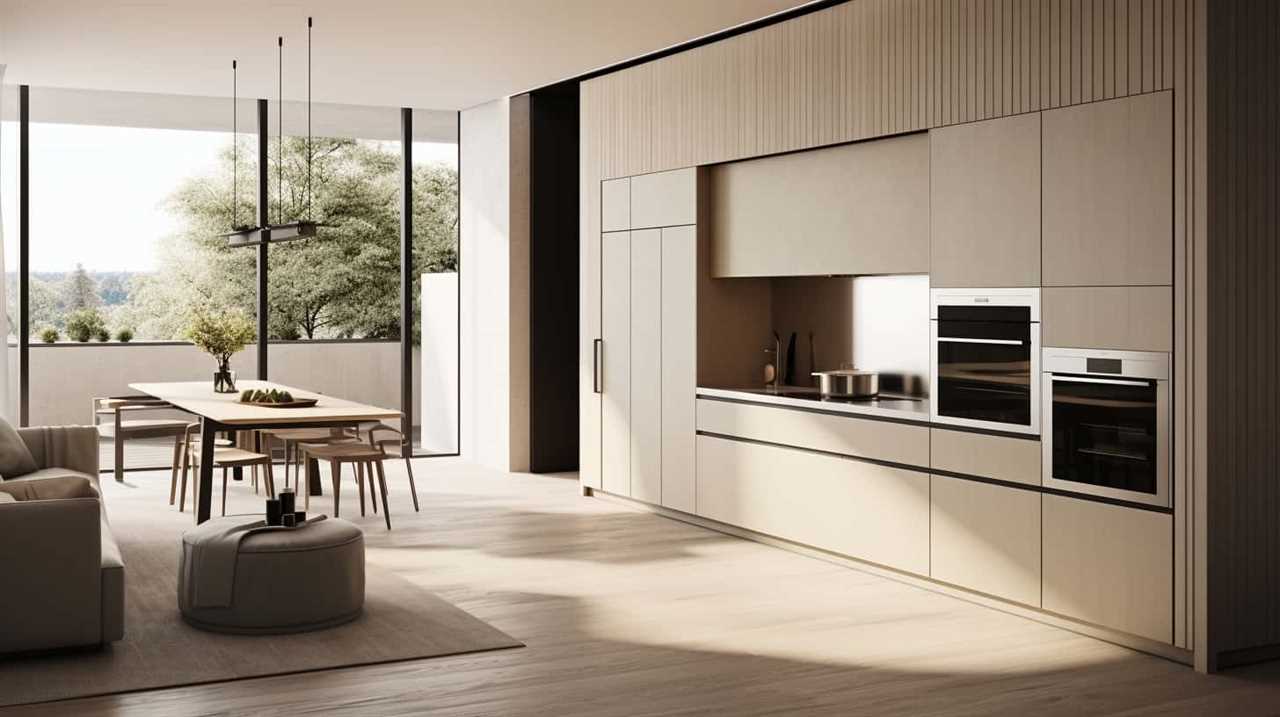
- Calculating appliance depreciation: To determine the depreciation amount, you need to know the purchase price, useful life, and depreciation method. The useful life is typically determined by the IRS, and different appliances may have different useful lives.
- Claiming appliance deductions: Appliance deductions are claimed over a specific period of time using the Modified Accelerated Cost Recovery System (MACRS). This system allows for the gradual deduction of the appliance’s cost over several years.
- Keep accurate records: It’s important to maintain detailed records of appliance purchases, including receipts, invoices, and any relevant documentation. This will help ensure accurate depreciation calculations and provide evidence in case of an audit.
Rental Property Deductions
We can deduct the cost of appliances for our rental property by following the depreciation rules for rental property deductions. Understanding rental property deductions and maximizing tax benefits is crucial for rental property owners.
Depreciation refers to the gradual decrease in value of an asset over time. The IRS allows rental property owners to deduct the cost of appliances by spreading the expense over several years. This is known as depreciation. Appliances used for rental purposes, such as refrigerators, stoves, and washers, are considered depreciable assets.
The IRS provides guidelines on how to calculate and claim depreciation deductions for these appliances. By following these rules, rental property owners can effectively reduce their taxable income and maximize their tax benefits.
It’s important to consult a tax professional or refer to IRS guidelines for accurate and up-to-date information on rental property deductions and depreciation rules.
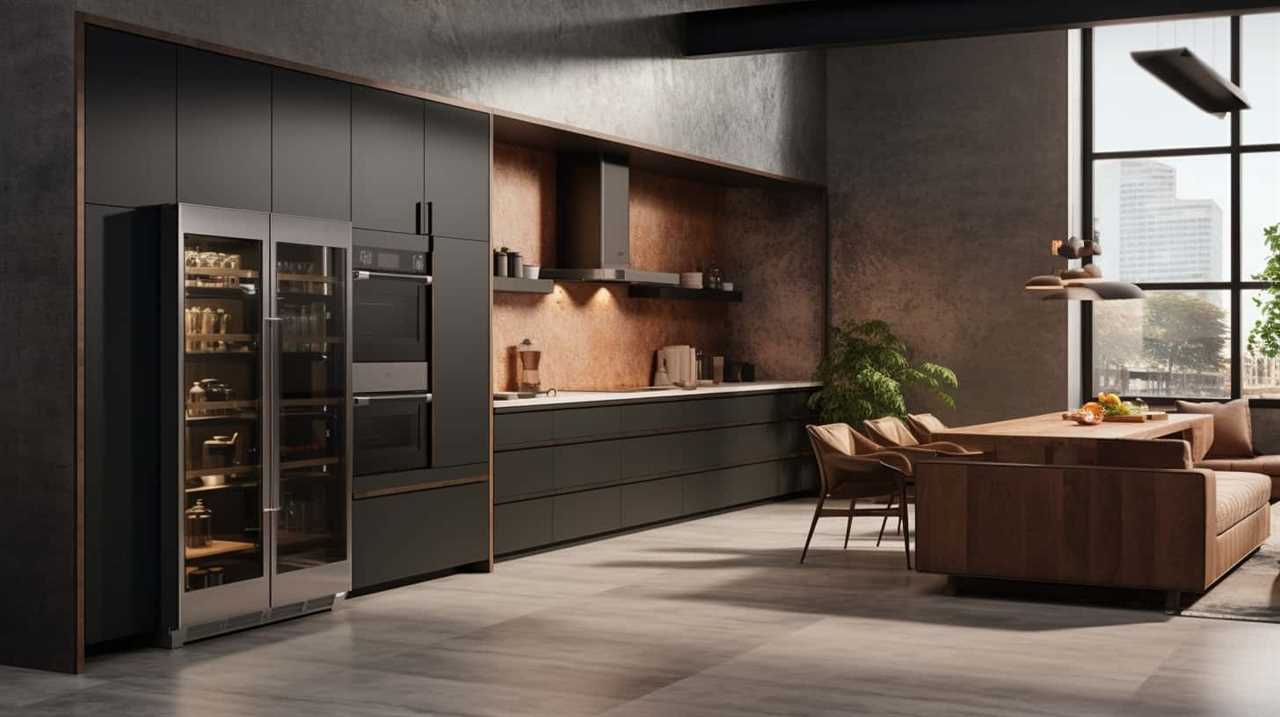
Tax Benefits for Appliances
To maximize our tax benefits, we can deduct the cost of appliances for our rental property by following the depreciation rules for rental property deductions. This allows us to claim deductions on the appliances over a period of time, rather than all at once.
Here are three key things to know about tax benefits for appliances:
- Depreciation Period: The IRS allows us to depreciate appliances over a specific period, typically 5, 7, or 15 years, depending on the appliance’s lifespan.
- Modified Accelerated Cost Recovery System (MACRS): This is the method used to calculate the depreciation deduction for appliances. It takes into account the recovery period and the applicable depreciation method.
- Section 179 Deduction: Under this provision, we may be able to deduct the full cost of eligible appliances in the year they’re placed in service, up to a certain dollar limit.
Calculating the Depreciation of Rental Property Appliances
When calculating the depreciation of rental property appliances, it’s important to consider the useful life and fair market value of the items. Depreciation is the gradual decrease in value of an asset over time due to wear and tear, obsolescence, or other factors.
To calculate the depreciation of rental property appliances, one must first determine the useful life of each item. The useful life is the estimated period that the appliance will be in service before it becomes obsolete or needs replacement.

Next, the fair market value of the appliance at the time of purchase must be determined. This value represents the price that the appliance would fetch in the open market.
Maximizing Tax Benefits Through Appliance Deductions
By deducting the depreciated value of appliances from our rental property income, we can maximize our tax benefits. Here are three ways to do just that:
- Determine the appliance cost basis: To calculate the depreciation deduction, you need to know the initial cost of the appliances. This includes the purchase price, delivery fees, and installation costs.
- Depreciate the appliances over their useful life: Appliances have a predetermined useful life, which is typically five to seven years. By spreading out the depreciation deduction over this period, you can reduce your taxable rental income.
- Consider the tax implications of appliance upgrades: Upgrading appliances can increase the rental value of your property. However, it’s important to note that the cost of the upgrades may not be fully deductible in the year of purchase. Consult with a tax professional to understand the specific rules and limitations.
By following these strategies, you can maximize your tax benefits while ensuring compliance with the IRS.
Now let’s explore the documentation required for claiming appliance deductions.
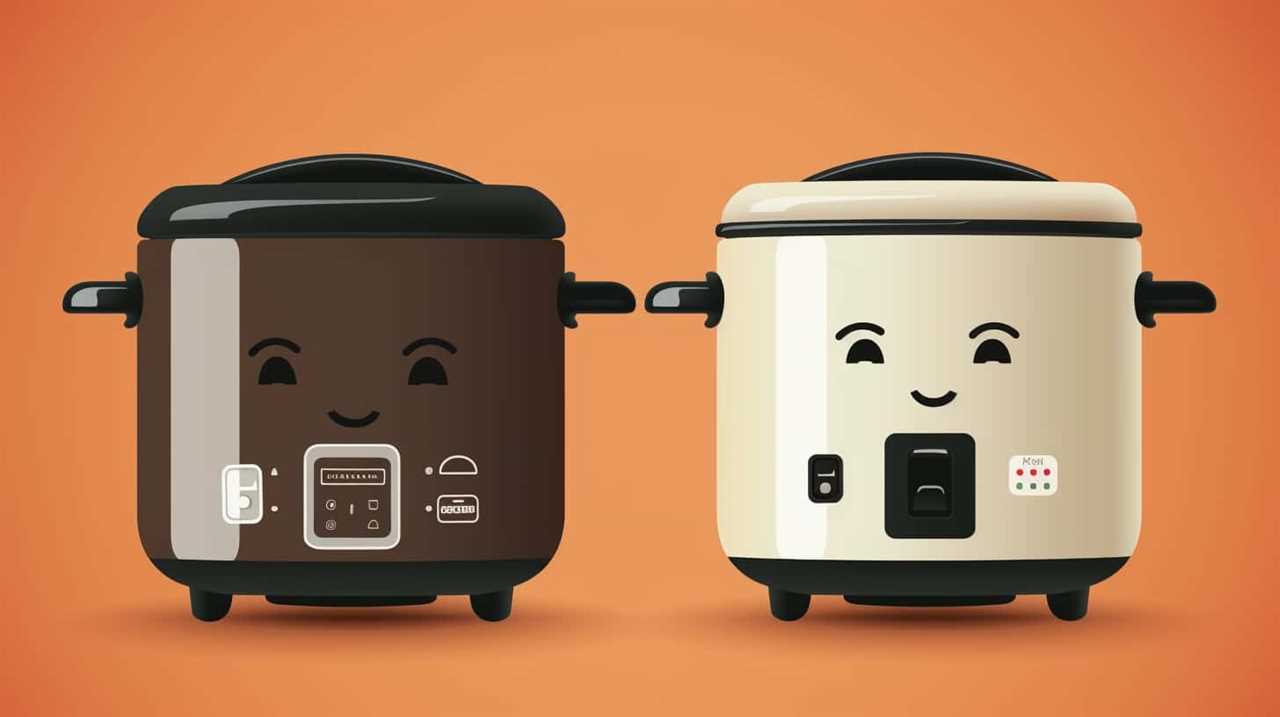
Documentation Required for Claiming Appliance Deductions
Now let’s discuss the documentation we need to gather in order to claim appliance deductions for our rental property. Understanding deduction requirements is essential to ensure that we’ve the necessary paperwork to support our claims.
Firstly, we must keep track of appliance expenses by maintaining accurate records of all purchases related to our rental property. This includes invoices, receipts, and any other relevant documentation.
Additionally, it’s crucial to record the date of purchase, the cost of each appliance, and any installation or repair expenses incurred. This information will be vital when filing our tax returns and claiming deductions for these appliances.
How to Determine the Fair Market Value of Appliances
To determine the fair market value of appliances for our rental property, we assess their current worth based on their condition, age, and market demand. Here are three steps to help you determine the fair market value of your appliances when calculating depreciation and claiming deductions:

- Evaluate the condition: Take into account any wear and tear, damages, or repairs needed on the appliances. Appliances in excellent condition will have a higher value than those in poor condition.
- Consider the age: Appliances depreciate over time, so the older they are, the lower their value. Research the average lifespan of the specific appliance to determine its depreciation rate.
- Research market demand: Look into the current market trends and demand for similar appliances. If there’s high demand, the value of your appliances may be higher.
Appliance Upgrades and Their Impact on Deductions
When considering appliance upgrades for our rental property, we must assess their impact on deductions. Upgrading appliances can have a significant effect on our ability to claim deductions for our rental property. One important factor to consider is the concept of calculating depreciation. Depreciation allows us to deduct the cost of the appliances over their useful life, which can help offset rental income and reduce our tax liability. Additionally, investing in energy-efficient appliances can provide us with additional deductions and benefits. These appliances not only save us money on operating costs but also qualify for energy efficiency tax credits. To better understand the impact of appliance upgrades on deductions, let’s take a look at the table below:
| Appliance | Cost | Useful Life |
|---|---|---|
| Washer | $500 | 10 years |
| Dryer | $400 | 8 years |
| Refrigerator | $800 | 12 years |
| Dishwasher | $600 | 9 years |
| Total | $2,300 |
Repairs Vs. Replacements: Which Are Deductible
As we continue discussing the impact of appliance upgrades on deductions for our rental property, one important aspect to consider is the deductibility of repairs versus replacements. When it comes to replacing vs. repairing appliances, understanding the tax implications of appliance upgrades is crucial.
Here are three key points to keep in mind:
- Repairs: Generally, repairs are considered deductible expenses. These include fixing minor issues or replacing small parts to restore the functionality of an appliance. Repair costs can be deducted in the year they occur, reducing your taxable rental income.
- Replacements: On the other hand, replacing an appliance with a brand new one isn’t immediately deductible. Instead, the cost of the replacement appliance is typically considered a capital expense and must be depreciated over time. This means that you can deduct a portion of the expense each year over its expected useful life.
- Improvements: It’s important to note that if the replacement appliance is considered an improvement over the old one, the cost may need to be capitalized and depreciated over its useful life. Improvements generally enhance the value, functionality, or efficiency of the property.
Understanding the distinction between repairs and replacements is essential for maximizing your deductions and complying with tax regulations. Be sure to consult with a tax professional for personalized advice based on your specific situation.
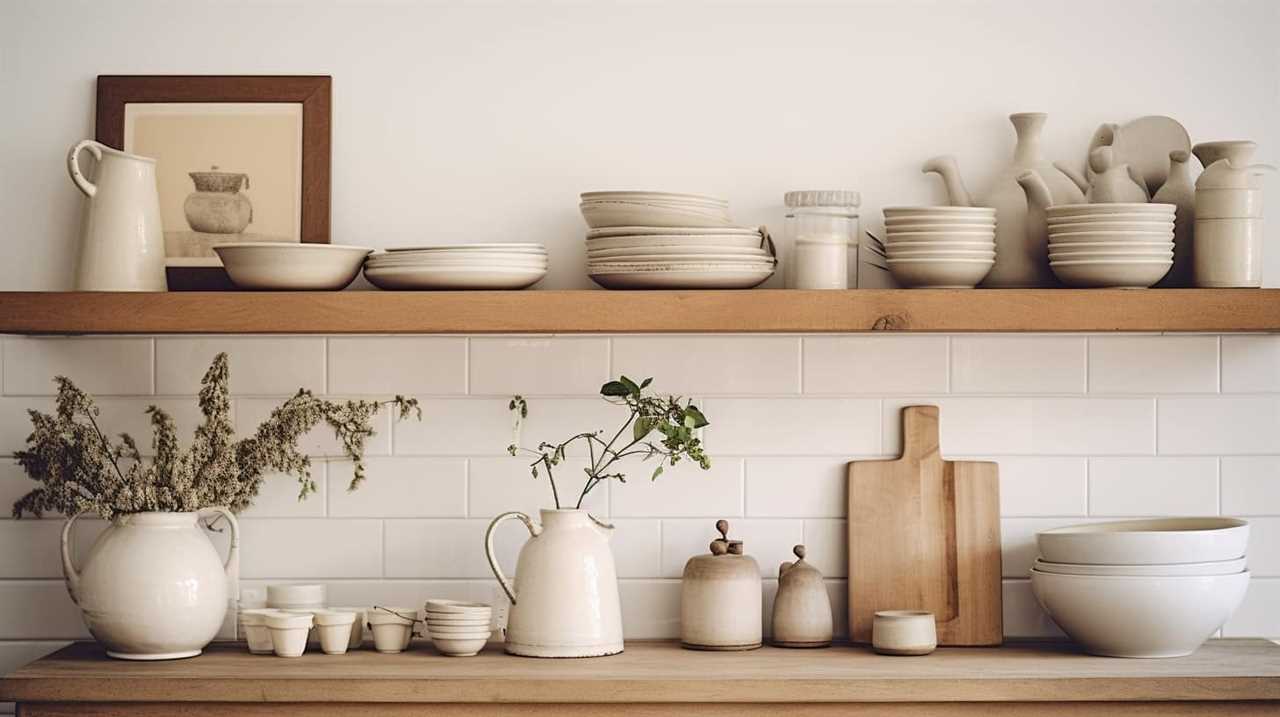
Deducting the Cost of Energy-Efficient Appliances
We can deduct the cost of energy-efficient appliances for our rental property. Energy efficiency is a key consideration for landlords who want to reduce operating costs and promote sustainability. By investing in appliances that are energy-efficient, we not only contribute to a greener environment but also enjoy long-term cost savings.
Energy-efficient appliances are designed to consume less electricity or water compared to their conventional counterparts. This means lower utility bills for our rental property, leading to increased profitability. Additionally, some local and federal programs offer incentives and tax credits for energy-efficient appliances, further reducing the overall cost.
Therefore, when purchasing appliances for our rental property, it’s wise to prioritize energy efficiency to maximize both environmental benefits and financial gains.
Applicable Deductions for Leased Appliances
When it comes to leased appliances for rental properties, there are potential tax benefits that landlords should be aware of.
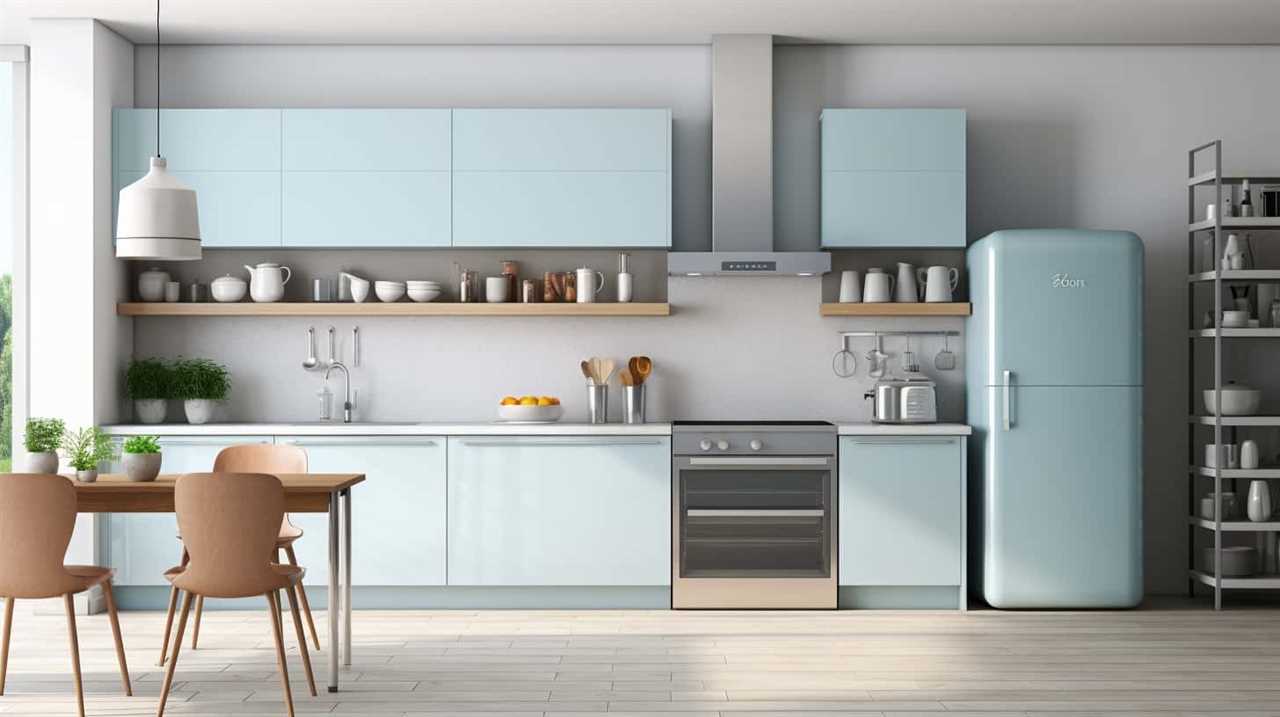
However, it’s important to understand the eligibility criteria for these deductions. By knowing the specific requirements set by the IRS, landlords can ensure they’re making the most of applicable deductions for leased appliances.
Tax Benefits of Appliances
How can appliances leased for a rental property provide tax benefits?
- Energy efficient appliances:
By leasing energy efficient appliances for your rental property, you may be eligible for tax benefits. The government encourages the use of energy efficient appliances by offering tax incentives to landlords who invest in these appliances. This not only helps you save money on energy bills but also reduces your carbon footprint. - Fair market value determination:
When deducting the cost of leased appliances, it’s important to determine their fair market value. The fair market value is the price that the appliance would sell for in the open market. This value can be used to calculate the depreciation expense that can be deducted over the useful life of the appliance. - Enhanced deductions:
In some cases, you may be able to deduct the full cost of leased appliances in the year they’re placed in service. This can provide a significant tax benefit and help offset the initial costs of acquiring the appliances.
By understanding the tax benefits of leasing appliances for your rental property, you can make informed decisions and maximize your deductions.
Now, let’s explore the eligibility criteria for these deductions.
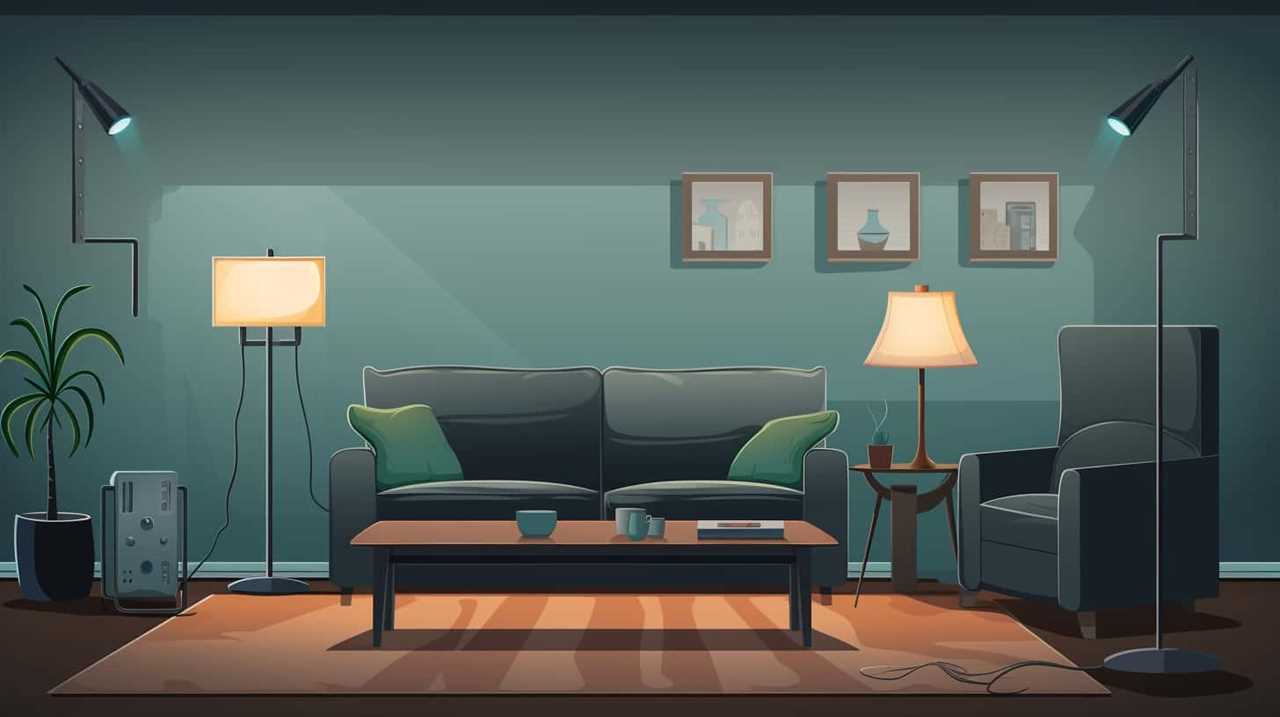
Eligibility Criteria for Deductions
To be eligible for deductions on leased appliances for your rental property, landlords must meet certain criteria.
When it comes to deducting rental expenses, it’s important to understand the rules surrounding claiming appliance repairs.
As a landlord, you can deduct expenses related to the repair and maintenance of appliances that are used in your rental property. However, there are a few conditions that must be met.
First, the appliances must be used solely for rental purposes and not for personal use.
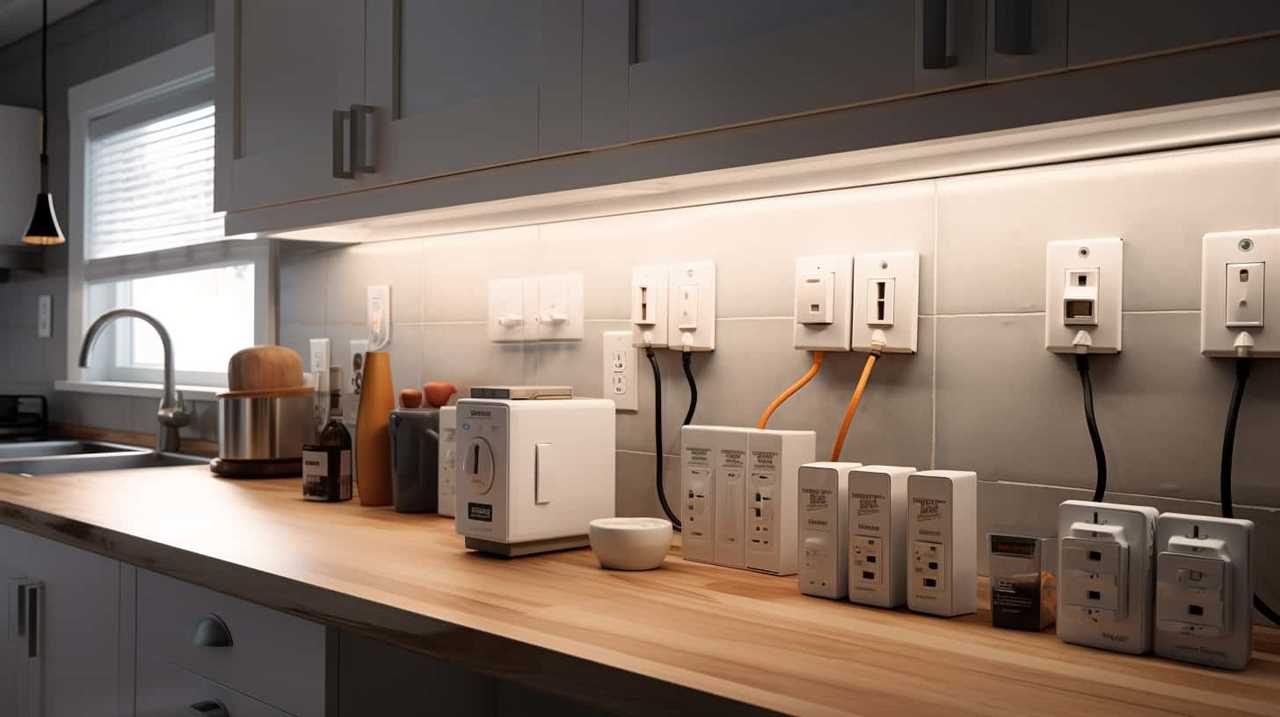
Second, the repairs must be necessary and ordinary for the rental property. This means that the repairs must be common and expected for the type of appliances used in rental properties.
Reporting Appliance Deductions on Your Tax Return
We can report appliance deductions on our tax return by including the relevant information and documentation. When claiming appliance expenses, it’s important to be aware of the appliance deduction limits set by the IRS. Here are three key steps to follow when reporting appliance deductions:
- Keep detailed records: Maintain accurate records of all appliance purchases, including receipts, invoices, and any other relevant documentation. This will help support your deduction claim if audited by the IRS.
- Calculate depreciation: Determine the depreciation value of the appliances based on their useful life, as determined by the IRS guidelines. This will allow you to claim the appropriate deduction amount.
- Complete the relevant tax forms: Use Form 4562, Depreciation and Amortization, to report your appliance deductions. Ensure that you accurately fill out all the required fields and attach the form to your tax return.
By following these steps, you can accurately report your appliance deductions on your tax return.
Now, let’s discuss the common mistakes to avoid when deducting appliances.

Common Mistakes to Avoid When Deducting Appliances
When deducting appliances for rental property, it’s crucial to ensure proper documentation for deductions and have a clear understanding of depreciation rules.
One common mistake to avoid is failing to keep receipts and records of appliance purchases and repairs.
Additionally, it’s important to accurately calculate and claim depreciation expenses based on the useful life of the appliances.
Proper Documentation for Deductions
When deducting appliances for rental property, it’s important to ensure proper documentation for deductions to avoid common mistakes. Understanding IRS requirements and maximizing tax savings go hand in hand with proper documentation. Here are three key points to consider:
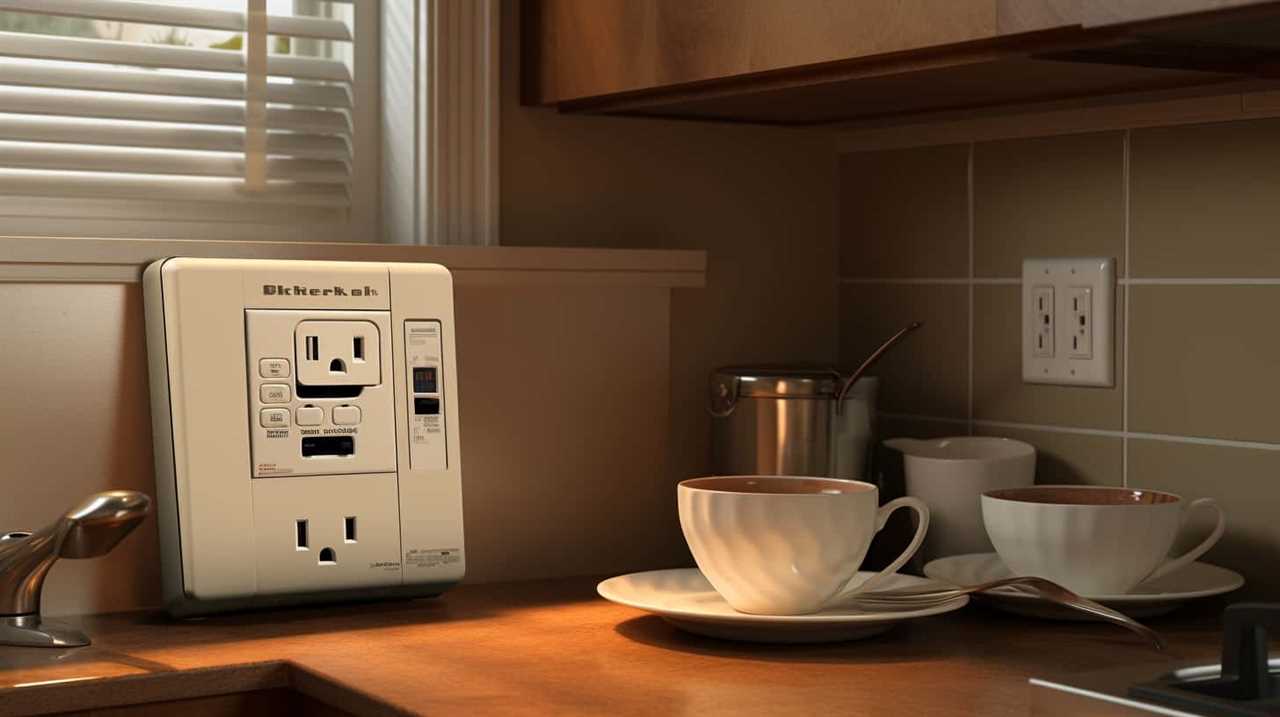
- Keep records of appliance purchases:
Maintain receipts, invoices, and other relevant documents to prove the cost of the appliances. This documentation will be crucial during tax filing. - Document depreciation:
Appliances have a specific lifespan, and their value decreases over time. Keep track of the depreciation of each appliance and include this information in your records. - Maintain a separate account for rental property expenses:
It’s essential to have a separate bank account for your rental property. This will help you keep track of all expenses related to the property, including appliance purchases.
Understanding Depreciation Rules
Understanding the correct depreciation rules is crucial when deducting appliances for rental property. Calculating depreciation allows you to maximize your deductions and accurately account for the wear and tear of your appliances over time. To calculate depreciation, you need to know the cost basis of each appliance, its useful life, and the depreciation method you’ll use.
The cost basis is the amount you originally paid for the appliance, including any installation fees. Useful life refers to the number of years the appliance is expected to last before it needs to be replaced. Depreciation methods include straight-line depreciation, which spreads the cost evenly over the useful life, and accelerated depreciation, which allows for larger deductions in the earlier years.
By understanding these rules and making informed decisions, you can ensure that you’re deducting the correct amount for your appliances and maximizing your rental property deductions.
When it comes to deducting appliances for rental property, understanding the correct depreciation rules is crucial. By calculating depreciation accurately, you can maximize your deductions and ensure compliance with IRS guidelines.
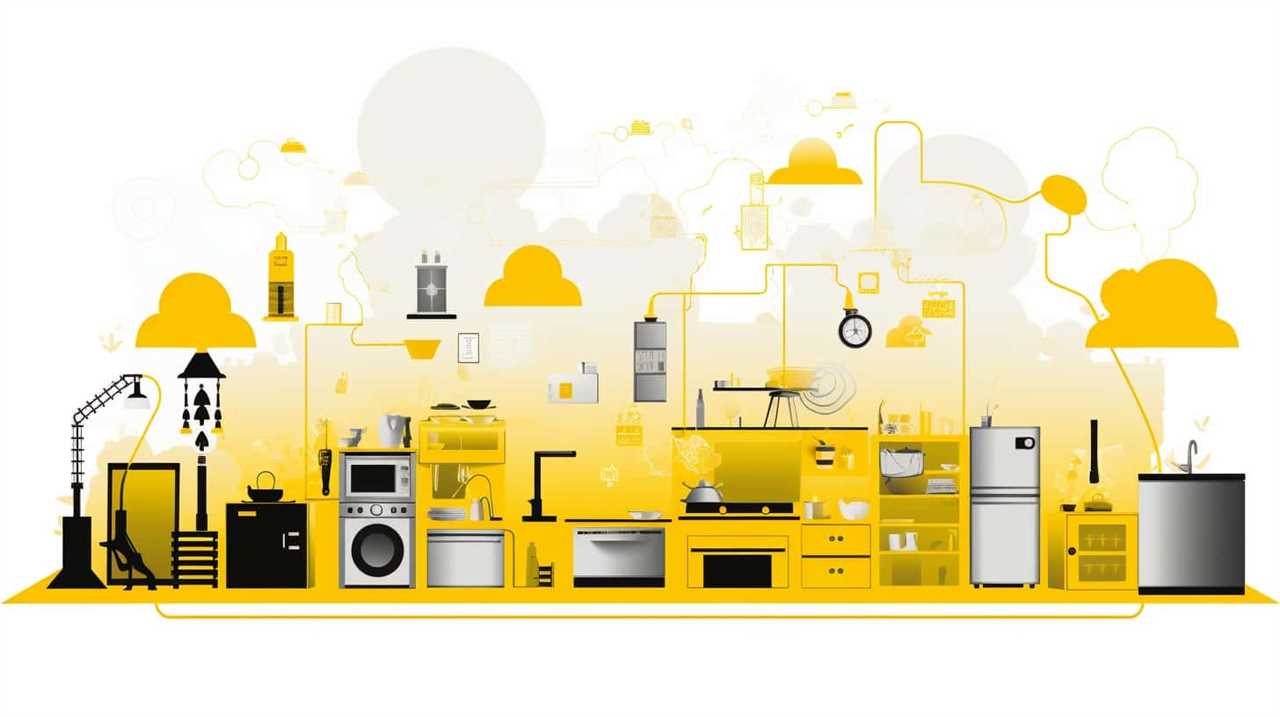
IRS Audits and Appliance Deductions: What to Know
During IRS audits, we need to be aware of what to know about appliance deductions. Understanding the tax implications of appliance upgrades is crucial to avoid any potential IRS audit risks. Here are three key points to keep in mind:
- Capitalization requirements: The IRS considers appliances as part of the rental property’s capital assets. You may need to capitalize the cost of appliances and claim depreciation over several years, rather than deducting the full cost in the year of purchase.
- Repairs vs. improvements: It’s important to distinguish between repairs and improvements when it comes to appliances. Repairs are deductible in the year incurred, while improvements may need to be capitalized and depreciated.
- Record-keeping: Proper documentation is essential in case of an IRS audit. Keep detailed records of appliance purchases, repairs, and improvements, including receipts, invoices, and any relevant documentation supporting the expenses.
Being knowledgeable about these appliance deduction rules can help you avoid potential IRS audit issues and ensure compliance with tax regulations.
Seeking Professional Advice for Appliance Deductions
When it comes to deducting appliances for rental property, seeking professional advice is crucial. Hiring a tax professional who specializes in real estate can provide expert guidance on navigating the complexities of appliance deductions.
The benefits of professional assistance include ensuring compliance with IRS regulations, maximizing deductions, and minimizing the risk of audit.

Expert Appliance Deduction Advice
Seeking professional advice for appliance deductions is essential when navigating the complexities of deducting appliances for rental properties. To maximize tax savings and ensure compliance, it’s crucial to consult experts who are well-versed in the intricacies of tax laws and regulations.
Here are three reasons why seeking expert appliance deduction advice is crucial:
- Knowledge of eligible appliance types: Professionals can guide you in identifying which appliances qualify for deductions. They have a deep understanding of the specific criteria set by the IRS, ensuring that you choose the right appliances to maximize your deductions.
- Understanding tax regulations: Tax laws can be complex and subject to frequent changes. Experts stay updated on the latest regulations, enabling them to provide accurate advice and help you navigate potential pitfalls.
- Maximizing tax savings: Professionals can help you strategize and structure your deductions in a way that optimizes tax savings. They can identify potential tax credits and deductions beyond just appliances, ensuring you take full advantage of all available benefits.
Hiring Tax Professional
To ensure the accuracy and maximize our tax savings, we should consider hiring a tax professional for expert advice on appliance deductions for our rental property. A tax professional can guide us through the complex process of calculating tax savings and help identify potential deductions related to appliances. By enlisting their expertise, we can ensure that we are taking full advantage of all available tax benefits.
In order to illustrate the importance of seeking professional advice, let’s take a look at a table that compares the potential deductions for appliances with and without the assistance of a tax professional:
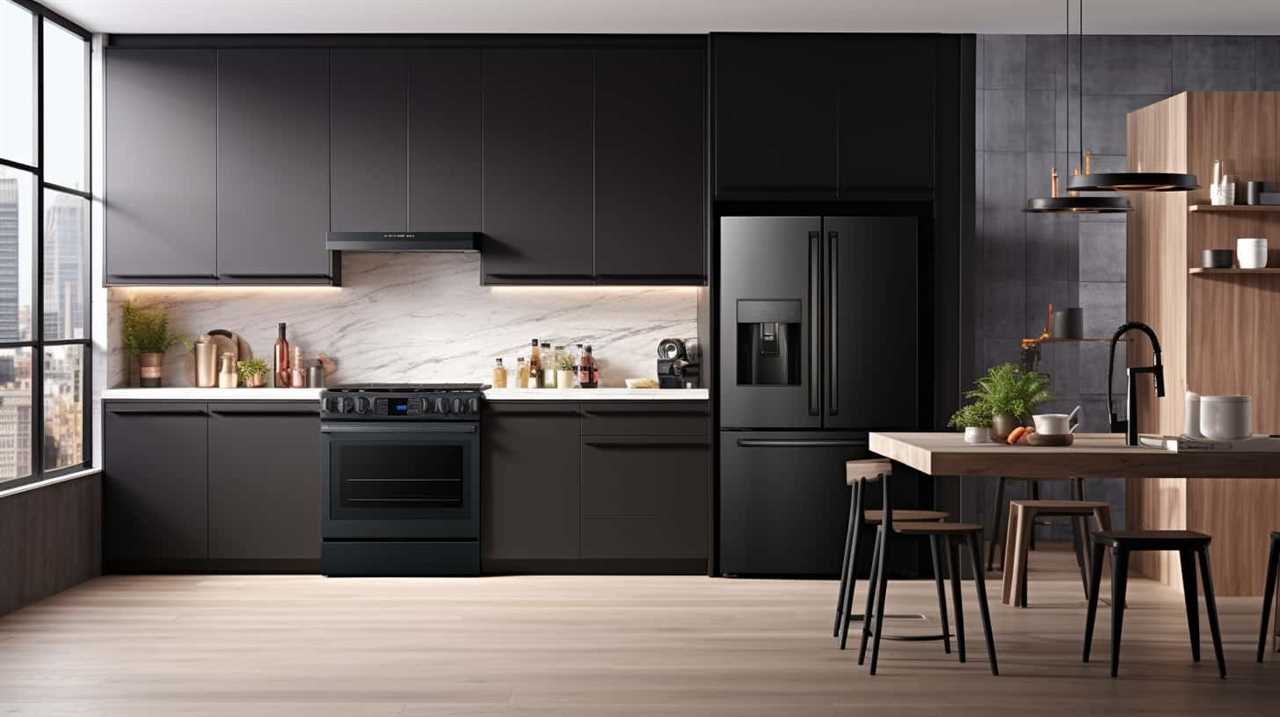
| Deduction Type | Without Tax Professional | With Tax Professional |
|---|---|---|
| Depreciation | $2,000 | $3,500 |
| Repairs | $500 | $800 |
| Energy Efficiency | $300 | $500 |
As we can see, the involvement of a tax professional can lead to a significant increase in deductions, resulting in higher tax savings. By utilizing their specialized knowledge, we can navigate the complex tax regulations and optimize our appliance deductions for our rental property.
Benefits of Professional Guidance
Hiring a tax professional offers invaluable assistance and expertise when it comes to maximizing appliance deductions for our rental property. Here are three benefits of seeking professional guidance for appliance deductions:
- Expert knowledge of tax laws: Tax professionals are well-versed in the ever-changing tax regulations. They can help us navigate the complex rules and identify all the deductions we’re eligible for, including those related to appliances.
- Tailored tax planning strategies: A tax professional can analyze our specific situation and develop customized tax planning strategies to maximize our deductions. They can advise us on the most advantageous ways to deduct the cost of appliances, taking into account our rental property’s unique characteristics.
- Audit support and risk mitigation: In the event of an audit, a tax professional can provide valuable support. Their expertise can help us navigate the audit process and reduce the risk of penalties or additional taxes. They can also ensure that our deductions are properly documented and substantiated, minimizing the chances of an audit altogether.
Frequently Asked Questions
Are There Any Limitations on the Types of Appliances That Can Be Deducted for Rental Property?
There are limitations on appliance deductions for rental property. It is important to understand the tax implications of replacing appliances. We can provide detailed information on this topic for those seeking mastery.
How Long Do Appliances Need to Be in Service Before They Can Be Eligible for Depreciation Deductions?
Appliance depreciation timeline depends on the specific appliance and its useful life. Appliances can be classified as rental property assets, and once they are placed in service, they become eligible for depreciation deductions.
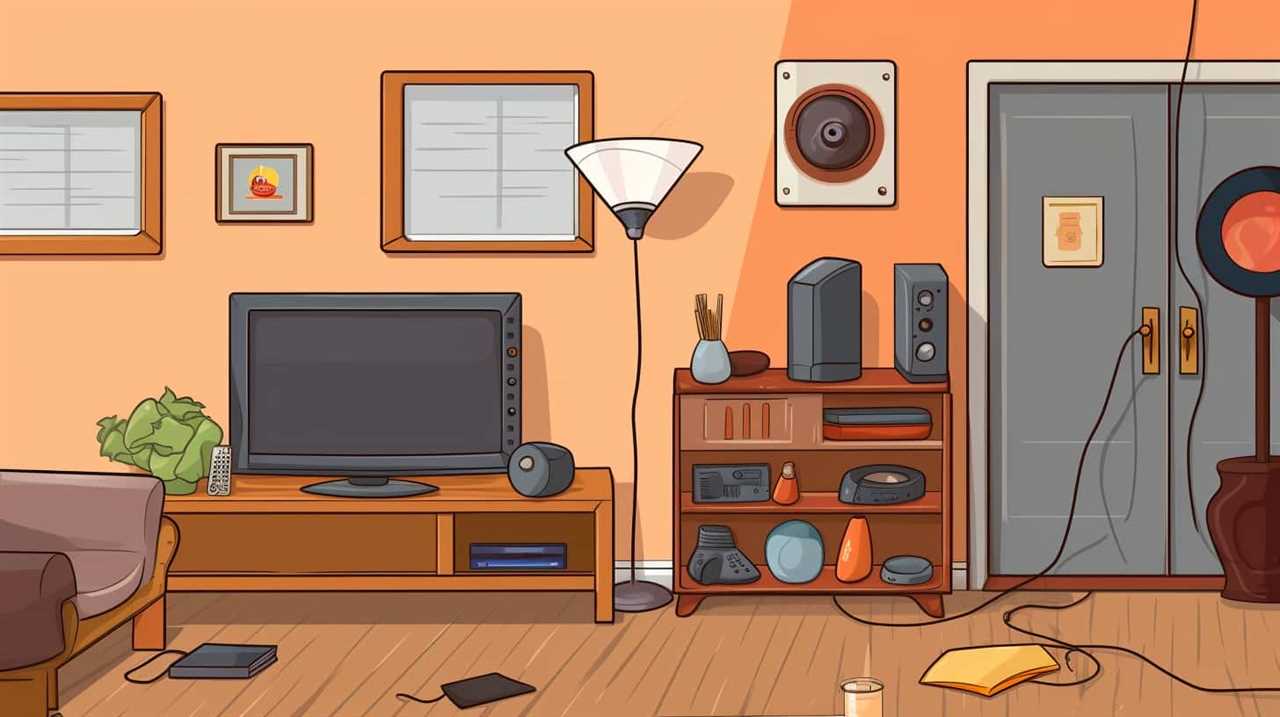
Can I Deduct the Cost of Repairs for Rental Property Appliances?
Yes, we can deduct the cost of repairs for rental property appliances. However, it’s important to note that eligibility for depreciation deductions depends on how long the appliances have been in service.
Are There Any Specific Requirements for Claiming Deductions on Energy-Efficient Appliances?
When claiming deductions for energy-efficient appliances, there are specific requirements you must meet. These include ensuring the appliances meet the necessary energy efficiency standards and keeping records of the purchase and installation. Tax incentives may be available.
What Documentation Do I Need to Provide When Claiming Appliance Deductions on My Tax Return?
When claiming appliance deductions on our tax return, we need to provide documentation that shows the appliance depreciation and meets the tax deduction requirements. This ensures accuracy and compliance with the tax laws.
Conclusion
In conclusion, deducting appliances for rental property can be a game-changer when it comes to maximizing tax benefits. By understanding the IRS guidelines and depreciation rules, you can calculate the depreciation of these appliances and report the deductions on your tax return.
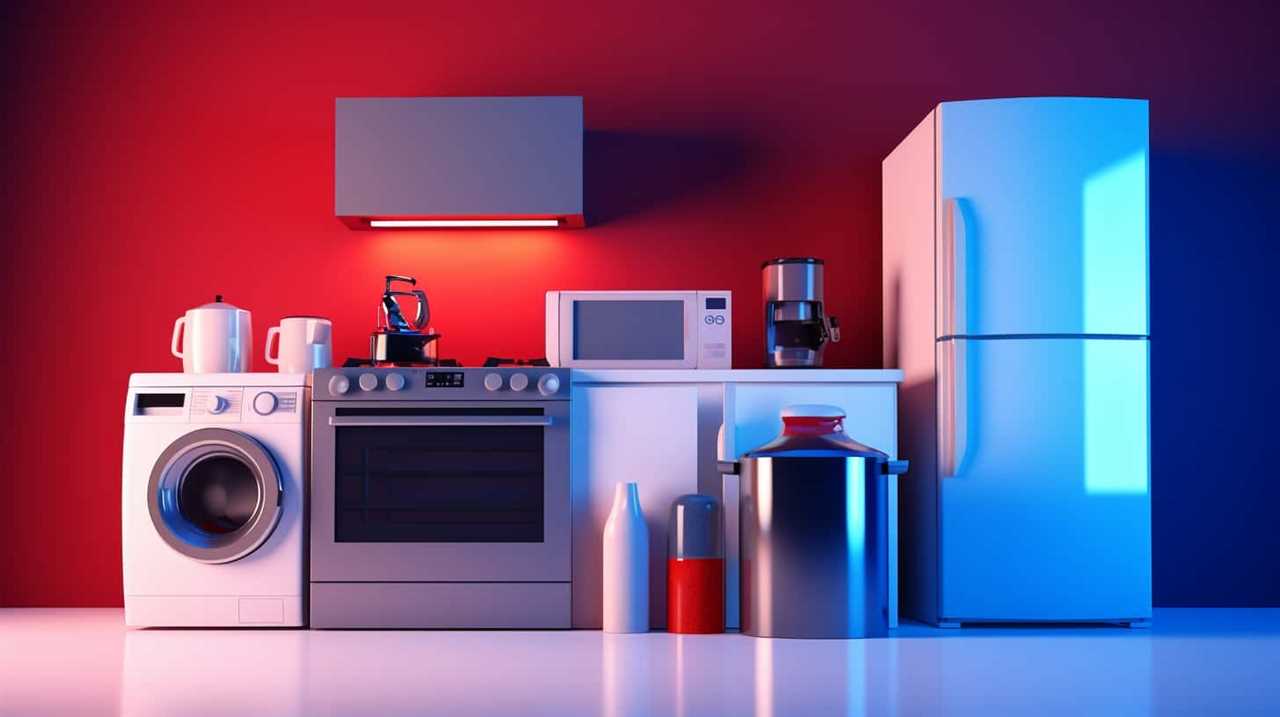
However, be cautious of common mistakes and consider seeking professional advice to navigate IRS audits. With the right approach, you can enjoy significant savings and make the most out of your rental property investments.
